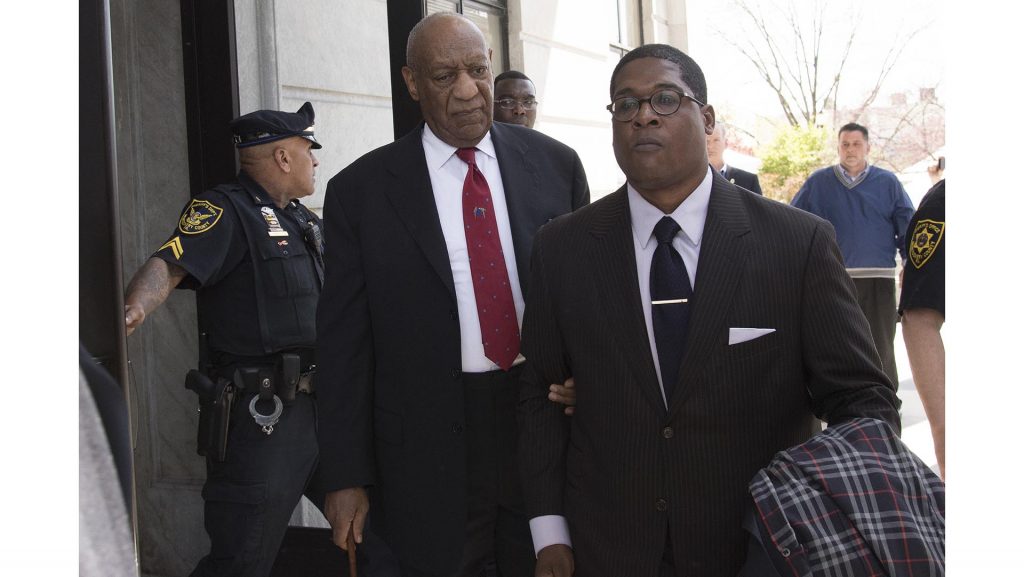Bill Cosby’s new verdict indicates that #MeToo is improving sexual-assault awareness, but there is still a lot of work to do.
Lucee Laursen
“Although justice was delayed, it was not denied.” These were the piercing words of Andrea Constand’s lawyer just after Bill Cosby was found guilty on three counts of sexual assault.
Many people are beginning to suspect the verdict discrepancy between Cosby’s first and second trial was influenced by the #MeToo movement. Cosby’s first trial, in July 2017, resulted in a deadlocked jury. A mistrial was declared, a new jury was picked, and Cosby was tried again. This time the jury found him guilty.
Between Cosby’s first and second trial, millions of posts with the #MeToo dominated social-media time lines. It is easy to assume the social change that was sparked by the #MeToo movement affected the verdict.
Cosby’s first hearing was prior to the Harvey Weinstein scandal, prior to Aziz Ansari’s incident, and prior to the widely trending #MeToo hashtag. This means that the 12 jurors who were selected in the first Cosby hearing may or may not have understood just how pervasive sexual assault is in the United States. Which means, it would be significantly easier to believe that Constand was just crying wolf.
Cosby’s second hearing was post-Harvey Weinstein takedown, post-Kevin Spacey being killed off of “House of Cards,” and post-millions of sexual-assault stories shared thanks to #MeToo. This means I would be hard-pressed to find that the 12 jurors selected in the second Cosby hearing had not been exposed to the prevalence of sexual assault in the United States. This makes it considerably harder to believe that Constand was fabricating the story.
It is obvious that sexual assault’s increased visibility affected the Cosby verdict.
#MeToo did an unparalleled job of making sexual assault visible. Almost anyone with a Facebook, Twitter, or Instagram virtually listened in to their friends sharing stories about sexual assault. As a result, society was forced to realize that sexual assault is something that millions of people have fallen prey to.
And although sexual assault is nothing new in this country, the thought of recounting personal stories about it can feel insurmountable to some survivors. #MeToo is extraordinary because it empowers survivors to scream their stories from the rooftops.
The fact is, in order for society to change, society must be informed. #MeToo has set the precedence that survivors should share their stories in hope that it will create a societal change.
The second Cosby trial is an indicator that #MeToo is doing just that: increasing society’s understanding of sexual assault.
We must continue to persist in the fight against sexual assault. One guilty verdict does not mean the war is over. No, it means this is the time to press harder than ever before. Now that the majority of people understand the preponderance of sexual assault, it is time to effect change. The goal of becoming visible has been reached. Now we must envision a future in which society reacts differently to sexual assault — a society in which if people are sexually assaulted, our first response isn’t to question their character or if they are telling the truth, it is to believe each other and help bring the accused to justice.
Three studies found that between 2 and 10 percent of sexual-assault cases are false reports. This is no higher than any other crime. So, let’s stop attacking the character of sexual-assault survivors and start facing the real problem at hand: sexual assault’s disgusting immunity to being eradicated.



